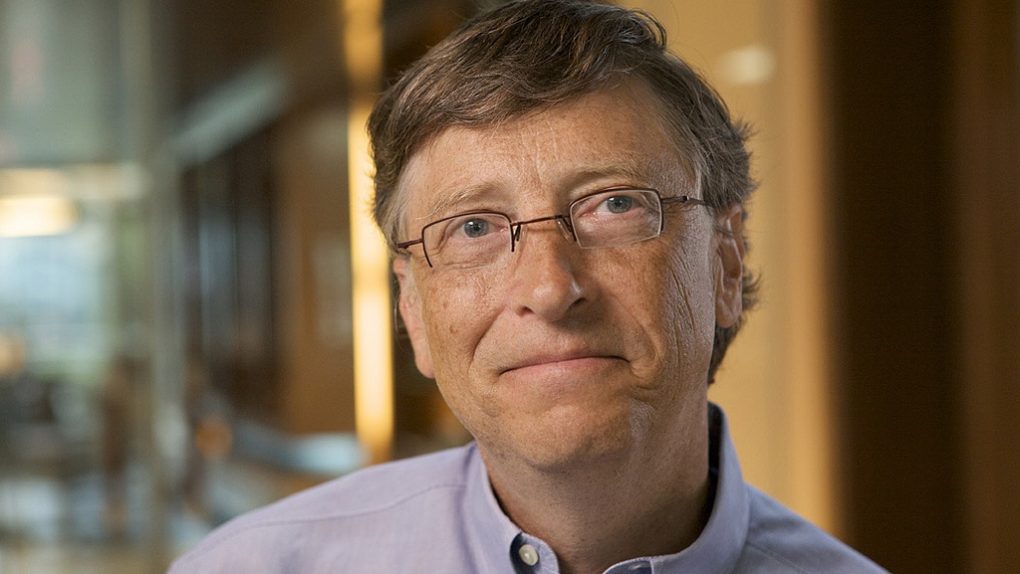- Bill Gates believes that antibody drugs could significantly reduce the coronavirus death rate over the next few months.
- While hospitalized at Walter Reed hospital, President Trump received an antibody drug cocktail developed by Regeneron.
- Gates previously blasted President’s Trump handling of the coronavirus pandemic.
Bill Gates earlier this week sat down with the Wall Street Journal and explained how upcoming antibody drugs could work wonders when it comes to lowering the coronavirus death rate. Hardly a surprise, one of the reasons why President Trump was able to recover so quickly is that he was given a number of drugs — including an antibody “cocktail” — not currently available for mainstream use but which may receive FDA approval sooner rather than later.
With testing yielding promising results for patients in the early throes of coronavirus infection, Gates said the development was exciting.
“The reduction in death rate there could be pretty high, and those will be out in volume by the end of the year, at least in the rich countries,” Gates explained.
The antibody cocktail Trump received was developed by Regeneron Pharmaceuticals, though it remains unclear the extent to which the cocktail alone helped Trump’s recovery. Regeneron has since submitted an application with the FDA to receive emergency approval for its antibody cocktail. In a press release the company issued in late September, Regeneron said that its cocktail helps reduce viral levels of the coronavirus, alleviates symptoms, and generally boosts a patient’s immune system response to the virus.
“After months of incredibly hard work by our talented team, we are extremely gratified to see that Regeneron’s antibody cocktail REGN-COV2 rapidly reduced viral load and associated symptoms in infected COVID-19 patients,” Regeneron Chief Scientific Officer George D. Yancopoulos, M.D., Ph.D. explained.
“The greatest treatment benefit was in patients who had not mounted their own effective immune response,” Yancopoulos continued, “suggesting that REGN-COV2 could provide a therapeutic substitute for the naturally-occurring immune response. These patients were less likely to clear the virus on their own, and were at greater risk for prolonged symptoms. We are highly encouraged by the robust and consistent nature of these initial data, as well as the emerging well-tolerated safety profile, and we have begun discussing our findings with regulatory authorities while continuing our ongoing trials.”
While antibody drugs are designed to combat the virus after a person has already been infected, an effective vaccine would prevent someone from contracting the virus in the first place. That said, work on an effective coronavirus vaccine candidate remains ongoing. Though nothing is for certain, Dr. Fauci anticipates that we could very well have an FDA-approved vaccine ready to go by the end of the year.
Even if the scenario above comes to pass, Gates just a few weeks ago said he doesn’t think the U.S. will be able to fully move past the coronavirus pandemic until 2022. He does, however, believe we’ll return to a semblance of normalcy by next summer.
“The end of the epidemic, best case, is probably 2022,” Gates said during an interview with Fox News last month. “But during 2021, the numbers, we should be able to drive them down, if we take the global approach. So, you know, thank goodness vaccine technology was there, that the funding came up, that the companies put their best people on it. That’s why I’m optimistic this won’t last indefinitely.”
Gates’ projection, of course, rests on a few unknown variables. For starters, the development of an effective coronavirus vaccine isn’t even a guarantee. What’s more, even if a vaccine is developed, health experts have cautioned that the initial incarnation may only be effective in 50% of patients. Beyond that, it’s possible the first vaccine may require people to take multiple doses, a fact which would prolong the time needed to administer it to the population at large.
On a related note, some of the coronavirus vaccine side effects participants in clinical trials have experienced thus far include fatigue, headaches, and fever. The good news is that these side effects reportedly went away after a day or two.








